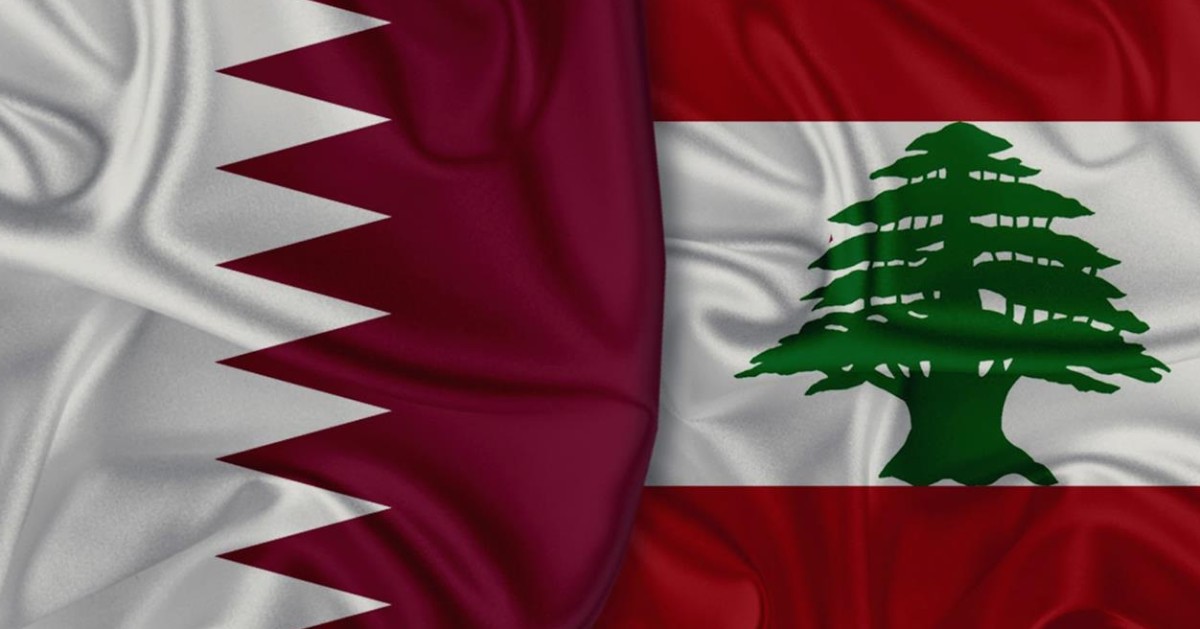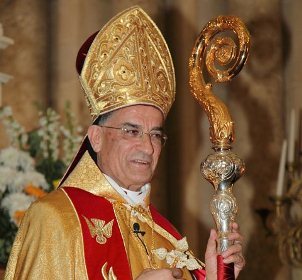
by Najia Houssari -- arabnews.com -- BEIRUT: Lebanese Caretaker Prime Minister Najib Mikati on Monday praised Qatar’s contributions to helping Lebanon through its political and economic crises during a meeting with the Gulf state’s Assistant Foreign Minister for Regional Affairs Mohammed bin Abdulaziz bin Saleh Al-Khulaifi. Mikati also highlighted the strong ties between the two states during talks with the visiting Qatari envoy. Mikati thanked Qatar “once again for supporting the Lebanese army and enabling it to carry out its responsibilities,” according to his media office. The Qatar official’s visit comes within the framework of the French-Arab-American endeavor to find solutions to the presidential vacuum in Lebanon, which has entered its sixth month as Parliament has held 11 failed voting sessions. Meanwhile, the Free Patriotic Movement, the Lebanese Forces, the Lebanese Kataeb, and the Progressive Socialist Party are rejecting the candidate put forward by Hezbollah and its allies, MP Suleiman Frangieh.
In talks with Al-Khulaifi, Mikati discussed the situation in Lebanon and efforts by the caretaker government to tackle emergency cases as permitted by the constitution, his media office said. He added that the solution to the crises affecting Lebanon lies in electing a president as soon as possible. Al-Khulaifi also met Parliament Speaker Nabih Berri, caretaker Foreign Minister Abdallah Bou Habib, Grand Mufti Sheikh Abdul Latif Derian, Maronite Patriarch Bechara Boutros Al-Rahi and head of the Kataeb Party MP Sami Gemayel. He later met Hussein Khalil, the political adviser to Hezbollah Secretary-General Hassan Nasrallah, in the presence of the head of Hezbollah’s Coordination and Liaison Unit, Wafiq Safa.

By Najia houssari - arabnews.com -- BEIRUT: Politicians need to commit to serving love, justice, and the good of humanity, Lebanon’s Maronite Patriarch Bechara Boutros Al-Rahi said on Sunday. His appeal, which was made during a sermon, came as Christian denominations in Lebanon that follow the Western calendar celebrated Palm Sunday. Economic and political matters were topics in Al-Rahi’s message as children carried candles and olive branches and participated in processions. Al-Rahi began his sermon — after a mass held in Bkerke — by reminding believers of the many children who are denied the joy of the holiday. He said: “The purpose of the power entrusted to politicians is service, not oppression. “Those in power are not lords but servants of the common good. A true politician is a servant. “If they are not, then they are bad politicians. Politics is a noble art in service of the common good. “Politicians are thus called upon to destroy their inner tendencies to be corrupt and selfish and serve personal interests or embezzle public funds.”
Al-Rahi addressed the nation’s MPs by saying that good politicians would promptly elect a president so that order can be restored to constitutional institutions. Al-Rahi is scheduled to meet Christian MPs on Wednesday in an attempt to smooth the way for a presidential candidate to emerge who enjoys broad support among the parties. A presidential vacuum has now prevailed in Lebanon for six months and Nabih Berri, parliamentary speaker, has ended sessions to elect a president after 11 failures. Suleiman Frangieh, the head of the Marada Movement and the presidential candidate supported by Hezbollah and its allies, returned from Paris on Saturday after meeting French officials, most notably Patrick Dorrell, an adviser to the French president. Frangieh’s meetings were held as the French work to overcome obstacles impeding the presidential elections.
By Hande Atay Alam, Tamara Qiblawi and AnneClaire Stapleton, CNN — Two flight attendants claim they were sexually assaulted by then Prime …

by Hannah Frasure -- intpolicydigest.org -- The failure of Lebanese politicians to reform the country’s banking secrecy law perfectly highlights how corruption fuels one of the worst financial crisis in the world. Lebanon’s ongoing economic crisis is one of the worst globally since the mid-19th century, according to the World Bank. Among Lebanese households, nine out of 10 earn less than $400 per month and less than 5% of households reported any kind of financial assistance from the government, according to a survey published in December by Human Rights Watch. The current inflation rate of 171% is at its highest since 1987 — when Lebanon’s disastrous civil war was still occurring. The banking secrecy law — which plays a role in this crisis — forbids Lebanese banks from sharing details of any bank account such as its balance or owner. Under the law, anyone can “transfer assets and financial deposits to banks anonymously and in an unregulated manner,” explains Lebanese economist Hussein Cheaito. As a result, critics accuse it of enabling financial crimes like fraud and money laundering.
Michel Aoun resigned as president in late October, which has only worsened the crisis. Since then, political division between Lebanese parliamentarians has prevented them from deciding on Aoun’s successor. Without a president, the interim government has been ineffectual in terms of carrying out any reform, let alone reforming the banking secrecy law. A briefing from the International Crisis Group warned of these consequences last year. “Such a vacuum could leave the government’s hands tied, since under Lebanon’s system the president must approve any new cabinet that forms, and the outgoing incumbent has not done so. In a void, caretaker ministers will struggle to make reforms the country needs to obtain rescue from its economic woes.”
Khazen History


Historical Feature:
Churches and Monasteries of the Khazen family

St. Anthony of Padua Church in Ballouneh
Mar Abda Church in Bakaatit Kanaan
Saint Michael Church in Bkaatouta
Saint Therese Church in Qolayaat
Saint Simeon Stylites (مار سمعان العامودي) Church In Ajaltoun
Virgin Mary Church (سيدة المعونات) in Sheilé
Assumption of Mary Church in Ballouneh
1 - The sword of the Maronite Prince
2 - LES KHAZEN CONSULS DE FRANCE
3 - LES MARONITES & LES KHAZEN
4 - LES MAAN & LES KHAZEN
5 - ORIGINE DE LA FAMILLE
Population Movements to Keserwan - The Khazens and The Maans
ما جاء عن الثورة في المقاطعة الكسروانية
ثورة أهالي كسروان على المشايخ الخوازنة وأسبابها
Origins of the "Prince of Maronite" Title
Growing diversity: the Khazin sheiks and the clergy in the first decades of the 18th century
Historical Members:
Barbar Beik El Khazen [English]
Patriach Toubia Kaiss El Khazen(Biography & Life Part1 Part2) (Arabic)
Patriach Youssef Dargham El Khazen (Cont'd)
Cheikh Bishara Jafal El Khazen
Patriarch Youssef Raji El Khazen
The Martyrs Cheikh Philippe & Cheikh Farid El Khazen
Cheikh Nawfal El Khazen (Consul De France)
Cheikh Hossun El Khazen (Consul De France)
Cheikh Abou-Nawfal El Khazen (Consul De France)
Cheikh Francis Abee Nader & his son Yousef
Cheikh Abou-Kanso El Khazen (Consul De France)
Cheikh Abou Nader El Khazen
Cheikh Chafic El Khazen
Cheikh Keserwan El Khazen
Cheikh Serhal El Khazen [English]
Cheikh Rafiq El Khazen [English]
Cheikh Hanna El Khazen
Cheikha Arzi El Khazen
Marie El Khazen